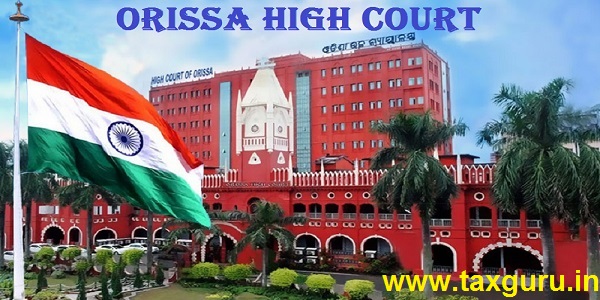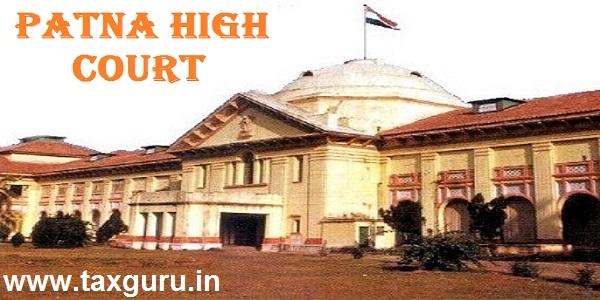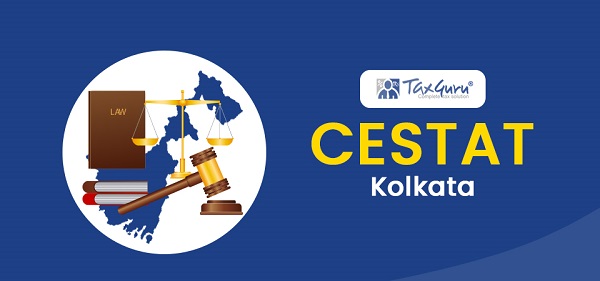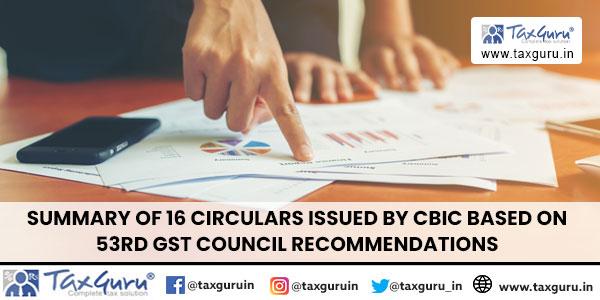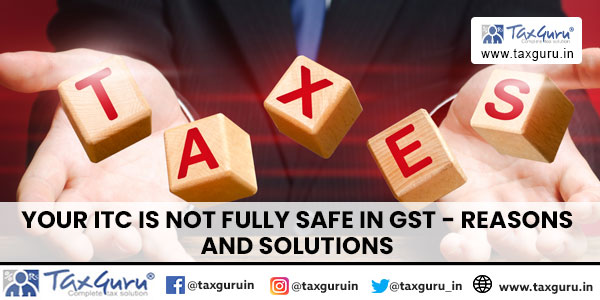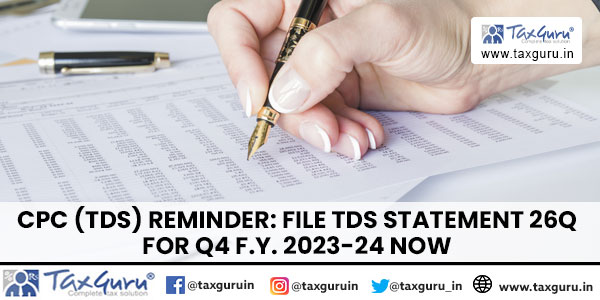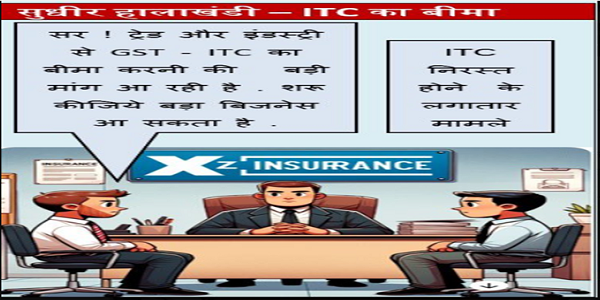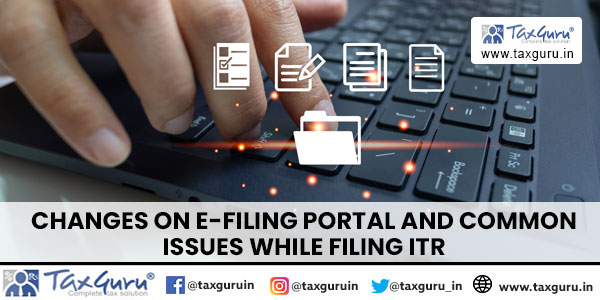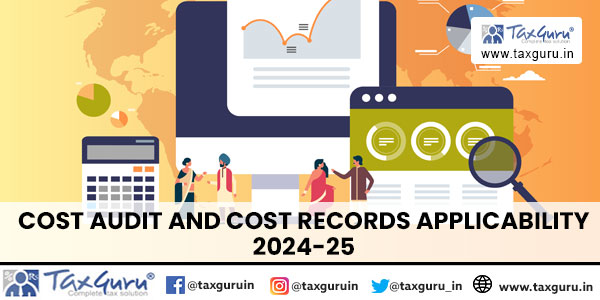Case Law Details
Uttarakhand Purv Sainik Kalyan Nigam Ltd. Vs ITO (ITAT Dehradun)
Reassessment on the basis of change of opinion, bad-in-law, more-so, when the case was re-opened after the expiry of four year and there was no non-disclosure which could be attributable to the assessee
A) Re-opening of assessment on the same issue which was dealt during scrutiny proceedings is impermissible on account of change of opinion.
A1) The original order does not need to be detailed, even if it is silent/cryptic on the issue but there are other aspects such as the notices, replies and discussion about the same in the order-sheet, it can be assumed that the issue was duly considered. Therefore, the assumption of jurisdiction to initiate re-assessment proceedings are bad-in-law.
B) Re-opening of assessment, after the expiry of 4 year is unsustainable when there is no non-disclosure which can be attributable to the assessee.
FULL TEXT OF THE ORDER OF ITAT DEHRADUN
The appeal is filed by the assessee against order passed by the Ld. Commissioner of Income Tax (Appeals), Dehradun {CIT (A)} vide order dated 28/03/2016 relating to Assessment Year (AY) 2009-10.
1.1 The following grounds of appeal have been raised:
1. That the Ld. CIT (A) erred in holding that the appellant corporation was not set up by a central, state or provisional act for the welfare and economic upliftment of ex serviceman being the citizen of India as required u/s. 10(26BBB) of the Income Tax Act, 1961.
2. That, Ld. CIT (A) and Ld Assessing Officer erred in holding that the appellant was not established by the a central, state or provisional act, both the Ld. A.O. and the CIT (A)erred in justifying that:
a. That Uttarakhand Purv Sainik Kalyan Nigam Limited was established by Government of Uttarakhand for welfare and economic upliftment of ex-serviceman and having duly satisfied the prescribed conditions of section10(26BBB) of the Income Tax Act, 1961.
b. The main objects of the Uttarakhand PurvSainik Kalyan Nigam Limited were to provide employment, financial assistance, loans, subsidy/grants, to impart training for entrepreneurship to the ex-serviceman and their dependents and having duly satisfied the conditions prescribed in the section 10(26BBB) of the Income Tax Act, 1961.
3. That, as all the conditions prescribed in section 10(26bbb) of the Income Tax Act,1961 were satisfied, the Ld.CIT(A) and Ld. Assessing Officer erred in holding that Assessee is not eligible for exempting the income of Rs 5,38,77,984/- for the Assessment Year 2009-10 in terms of the said Section.
4. That in the facts and circumstances of the case, the order U/s 143(3)/147 dated25/02/2015 is merely change in opinion’. The order u/s 143(3) passed by the Ld. AO dated 28.12.2011 does not in any way represent erroneous order.
5.The action of the Ld. Assessing Officer for re-opening the case was wholly unreasonable, uncalled for and bad in law
6.That the levy of interest under section 234A/B/C and 234D is erroneous and deserves to be deleted.
7.That the intention of penalty proceedings u/s 271(1)(c) are bad in law and not sustainable in law under the facts and circumstances of the case in so far as there was neither any willful concealment of income nor did the appellant furnish inaccurate particulars on income.
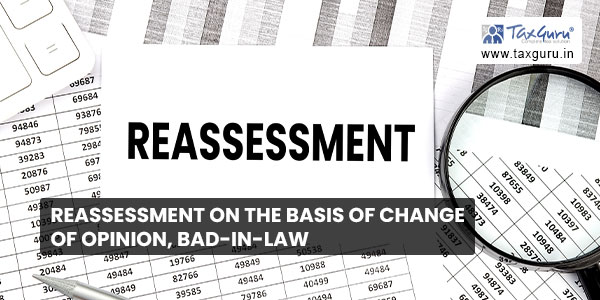
2.0 The brief facts of the case leading to dispute are that the assessee is a company incorporation u/s 617 of the Companies Act, 1956. The primary objective of the assessee company is to work towards welfare and upliftment of ex- servicemen of state of Uttarakhand. The assessee had claimed exemption u/s 10(26BBB) of the Income Tax Act, 1961 (hereinafter called ‘the Act’) in its return of income filed for the year under reference. The original assessment was completed u/s 143(3) of the Act vide order dated 28/12/2011 wherein the claim of exemption u/s 10(26BBB) was partially disallowed to the extent of Rs. 41,68,140/- by holding that the assessee company had provided services to person other than ex-servicemen and their dependents.
2.1 Subsequently, the case was reopened u/s 147 of the Act after expiry of four years from the end of the assessment year vide notice dated 22/01/2015. The reopening u/s 147 was made on the ground that the assesseee had not fulfilled the pre-condition for claim of exemption u/s 10(26BBB) and the entire claim needs to be disallowed. Eventually, the reassessment proceedings culminated into order passed u/s 143(3)/147 dated 25/02/2015 after making disallowance of the entire claim of exemption u/s 10(26BBB) of the Income Tax Act, 1961.
2.2 The assesseee remained unsuccessful in its appeal before the Ld. first appellate authority.
3.0 The assessee, before us, has effectively raised 6 grounds of appeal out of which ground no. 6 is regarding initiation of penalty u/s 271(1)(c) of the Act which is premature and is hereby dismissed. Further Ground no. 1 to 3 are on merits of the issue of claim of exemption u/s 10(26BBB) and ground no. 4 contains challenge to jurisdiction u/s 147 of the Income Tax Act, 1961.
3.1 As the issue of jurisdiction u/s 147 of the Act is germane for deciding the legality of the assessment order, we are first taking up Ground No. 4 for adjudication.
3.2 The ld. Counsel for the assessee submitted that the issue of exemption u/s 10(26BBB) of the Act was examined in great detail by the assessing officer at the time of the original assessment u/s 143(3) of the Act wherein partial disallowance of exemption was made and as such the notice u/s 148 was purely on the basis of change of opinion. The Ld. Counsel drew our attention to assessment order u/s 143(3) dated 28/12/2011, notices issued and replies filed during original assessment proceedings as placed at Pages 52-84 of the paper book to show that the subject matter of original assessment proceedings was the very same issue of exemption u/s 10(26BBB). It was further submitted that the notice u/s 148 has been issued after expiry of four years and that in absence of any failure on the part of the assessee in disclosing true and full particulars, the notice is barred by limitation in terms of proviso to section 147 of the Income tax Act, 1961. It was submitted that once the issue of exemption u/s 10(26BBB) has been examined in the course of original assessment, the assessing officer loses his jurisdiction to reopen the proceedings on the very same issue without any fresh tangible material.
4.0 The Ld. DR, on the other hand, supported the finding of the Ld. CIT (A) and argued that in the original assessment u/s 143(3), the assessing officer did not examine the eligibility to claim exemption u/s 10(26BBB) and as such the concept of change of opinion is not applicable. The Ld. DR further argued that proviso to section 147 is also satisfied as the assessee is guilty of not highlighting the crucial fact that it has not been formed under Central or provincial Act and as such there was failure on part of the assessee in disclosing true and full particulars. Accordingly, it was submitted that there is no defect in assumption of jurisdiction u/s 147 of the Income tax Act, 1961.
5.0 We have considered the rival submissions and gone through the material placed on record. The issue before us is regarding validity of notice u/s 148 issued after expiry of four years from the end of the assessment year. It is trite law the reassessment proceedings u/s 147 are extra-ordinary proceedings which require satisfaction of pre-requisite conditions in order to confer valid jurisdiction upon assessing officer. No doubt that heading of section 147 contain the term ‘income escaping assessment’ but the mere fact that income has escaped assessment is not sufficient to enable the assessing officer to assume jurisdiction u/s 147 of the Income Tax Act, 1961. As per the law laid down by the Hon’ble Apex Court in the case of CIT vs. Kelvinator India Ltd. 320 ITR 561 (SC), it is evident that power under section 147 cannot be exercised for correcting the wrong committed in the original assessment. Further, the action u/s 147 is not in the nature of review but to bring into tax net income which has escaped assessment due to factors beyond the control of the assessing officer at the time of framing the original assessment. The use of term ‘Change of Opinion’ by the Hon’ble Supreme Court makes it abundantly clear that assessing officer has no power to initiate reassessment proceedings u/s 147 in respect of issues which have been dealt with and considered in the original assessment. Further, the requirement of tangible material is in-built check to ensure that there is no review of material already on record.
5.1 In addition to above, in case of reassessment beyond four years from the end of the assessment year, the satisfaction of essential condition of failure on part of the assessee in disclosing and true and full particulars become relevant in deciding the expiry date of action u/s 147 of the Act. It means that where there is no failure on part of the assessee, the limitation for issue of notice u/s 148 expires on four years from the end of the assessment year.
5.2 The law laid down in Kelvinator India (Supra) has been succinctly explained by Hon’ble Delhi High Court in the case of Sun Pharmaceutical Industries Ltd. v. DCIT [2016] 381 ITR 387 (Delhi) wherein it was held that once there is full disclosure of facts and in absence of tangible material, no action can be taken u/s 147 of the Act.
5.3 On the touchstone of principle laid down by the Hon’ble Supreme Court, we will now analyse the facts of the present case. On perusal of reasons recorded for issue of notice, it is noted that the basis for assuming jurisdiction u/s 147 is claim of exemption u/s 10(26BBB) of the Income Tax Act, 1961. Now, when we examine the original assessment proceedings u/s 143(3), it is found that the issue of exemption u/s 10(26BBB) has been extensively dealt with and the assessment was ultimately completed after making proportionate disallowance of claim of exemption. Next, we turn to order-sheet of the original assessment file placed at PB pages 46-49 as per which it clear that the issue of exemption u/s 10(26BBB) was duly discussed with the authorized representative of the assessee on various dates. Further, vide notice u/s 142(1) dated 16/11/2011 issued during proceedings u/s 143(3), the assessing officer has specifically asked the assessee to prove with documentary evidences the conditions for claiming exemption u/s 10(26BBB). The assessee, vide letters dated 28/11/2011 and 20/11/2011duly submitted the complete details of the legal status of the company, its formation and objects in compliance to notices so issued. In the light of above background, we find that issue of exemption u/s 10(26BBB) has been elaborately considered in the assessment proceeding u/s 143(3) of the Income Tax Act, 1961 and as such the concept of change of opinion is fully applicable to the facts of the case.
5.4 Another important aspect is the satisfaction of first proviso to section 147 of the Income Tax Act, 1961. In this regard, we note that it is incumbent upon the assessing officer to demonstrate the failure on part of the assessee in disclosing true and full particulars in the reasons itself. The reasons must state as to what facts or material was not disclosed by the assessee leading to income escaping assessment. However, the reasons recorded in the present case fail on this count as well and other than empty statement at the end of the reasons, there is nothing to show that there was any failure in terms of first proviso to section 147 of the Income tax Act, 1961. In fact, on collective analysis of assessment order, notices, responses filed in the original proceedings as well as reassessment order, we do not find any failure attributable to assessee as mandated in first proviso to section147 of the Act. Moreover, no whisper of any fresh tangible material in the reasons further fortifies the fact that entire re-assessment proceedings is based on existing material which was already part of record.
5.5 Thus, it is apparent that action u/s 147 was solely for the purpose of enhancing the disallowance of claim of exemption u/s 10(26BBB) already made in the original assessment u/s 143(3) of the Income tax Act, 1961, which in our view, is impermissible and not in accordance with spirit of section 147 of the Act. The reasons recorded fail to satisfy the dual jurisdictional requirements as per law.
5.6 In reaching the above conclusion, we find strength from the decision of Hon’ble Uttarakhand High Court in the case of Oil and Natural Gas Corp. Ltd. v. DCIT [2003] 262 ITR 648. In the said decision, the assessing officer considered 10% disallowance of interest expenses in the original assessment proceedings u/s 143(3) and notice u/s 148 was issued for the purpose of making further disallowance of interest expense. The Hon’ble High Court quashed the re-assessment proceedings by observing as under:
“8. At the outset it needs to be mentioned that in the reasons for reopening of assessment which have been reproduced above it has not been alleged that there has been omission or failure on the part of the assessee to disclose fully and truly all the material facts necessary for assessments. The reasons itself, in fact, indicate that the assessee has disclosed fully and truly facts about the borrowings of funds as well as investments made in tax free public sector undertaking bonds. The reason to believe that income has escaped assessment was that the Assessing Officer has, in fact, not given conscious consideration to the aspect that if the assessee had not invested in tax free bonds there would not have been necessity for borrowing of funds by the assessee and by mistake underestimation of the income was made. It is, thus, obvious that the reasons shown do not satisfy the conditions as envisaged under the proviso to section 147 for reassessment.
9. On behalf of the petitioner reliance was placed on the Apex Court decision in Parashuram Pottery Works Co. Ltd. v. ITO [1977] 106 ITR 1 , in support of the contention that for failure of the Assessing Officer in assessing the taxable income recourse to section 147 of the Act cannot legally be taken. The Apex Court in the reported decision has observed that:
“. . . The duty which is cast upon the assessee is to make a true and full disclosure of the primary facts at the time of the original assessment. Production before the Income-tax Officer of the account books or other evidence from which material evidence could with due diligence have been discovered by the Income-tax Officer will not necessarily amount to disclosure contemplated by law. The duty of the assessee in any case does not extend beyond making a true and full disclosure of primary facts. Once he has done that his duty ends. It is for the Income-tax Officer to draw the correct inference from the primary facts. It is no responsibility of the assessee to advise the Income-tax Officer with regard to the inference which he should draw from the primary facts. If an Income-tax Officer draws an inference which appears subsequently to be erroneous, mere change of opinion with regard to that inference would not justify initiation of action for reopening assessment. . . .” (p. 7)
10. The principles laid down squarely apply to the facts of the instant case and on the pretext that there was no conscious consideration of the pointed facts at the time of the assessment, reopening of the assessment is not legally permissible by virtue of the proviso to section 147 of the Act.
11. In Mecdermott International Inc. v. Addl. CIT [2003] 259 ITR 138 (Uttaranchal) to which one of us (Hussain, J.) was a party, this court has recently held that an assessment could not be reopened when there was no failure on the part of the assessee to make a full and true disclosure of all material facts. It was reiterated that a reassessment cannot be initiated on the basis of a change of opinion and that Explanation 2 to section 147 of the Act permits reassessment within the permissible period under section 147 whereas to carry reassessment beyond a period of four years, the conditions under the proviso have to be fulfilled.”
5.7 In aforesaid background, we find to difficult to concur with reasoning given by the Ld. CIT (A) while upholding the validity of notice u/s 148 which is not in consonance with established legal principles as discussed above. In view of the above discussion, we are of considered view that notice u/s 148 dated 22/01/2015 is vitiated on dual count of change of opinion as well as first proviso to section 147 of the Income Tax Act, 1961 and same is hereby quashed. Resultantly, the re-assessment order passed u/s 143(3)/147 and addition made therein also gets annulled. Ground No. 4 is allowed.
5.8 Since we have quashed the re-assessment proceedings u/s 147, the Ground Nos. 1 to 3 relating to merits of the issue need to adjudication as having become academic in nature.
6.0 In the final result, the appeal of the assessee stands allowed.
Order pronounced on 31/05/2021.







